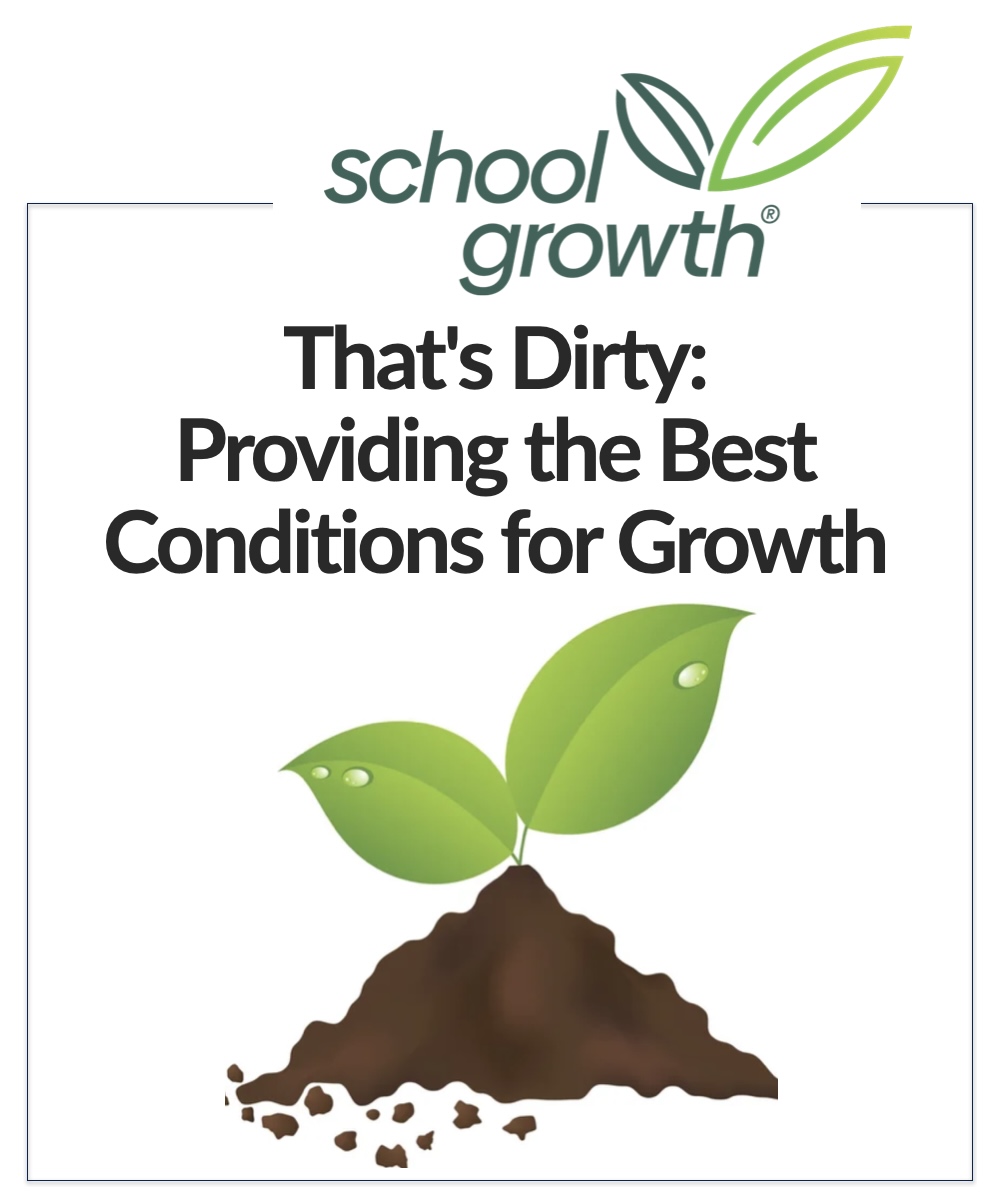
That's Dirty: Providing the Best Conditions for Growth
Being an educator can be hard work.
It's hard to give hard feedback.
It's hard to make hard decisions.
It's hard to change hard things.
Highly effective educators have to get dirty and do the hard things.
Few talk about the fact that education is a dirty job that even Mike Rowe, star of the Dirty Jobs TV show and podcast, esteems and respects. Our real impact is providing the best soil and the conditions for others to flourish.
People are like dirt. They can either
nourish you and help you grow as a
person or they can stunt your growth
and make you wilt and die.
— Plato
I pulled into the carwash because the condition of our little SUV was beyond pitiful.
Multiple road trips combined with a heavy pollen season had produced quite a mess.
The look on the guy's face was priceless as he walked around my vehicle to survey the situation. Eventually, he declared: "That's dirty!"
It took quite a while to get it clean and he charged extra because of the additional time required to get through the layers. That's OK—I was proud of that dirt! It was earned on the hard journey of walking with educators, learning and working together in the rich soil of loving and leading.
We facilitated board and leadership retreats, spoke at various events, shared inspirational messages for teachers and staff, worked on strategic plans, and conducted focus groups. 2024 has started strong for growing authentically excellent schools.
Soil is a living ecosystem, and is
a farmer's most precious asset.
A farmer's productive capacity is directly
related to the health of his or her soil.
― Howard Warren Buffett
Dirt is a key factor when it comes to growing stuff. Some of the best learning occurs with dirty hands that are able to experience, experiment, and engage with nature.
Dirty minds and dirty mouths, on the other hand, are not evidence of a wise educator, and extolling the dirt on other people is particularly unbecoming among those with great influence.
A school's productive capacity is directly related to the health of its soil: the quality of its people, the level of trust within its culture, and the integrity of its curriculum. The combination of these elements is crucial to school growth and student growth.
As for what was sown on good soil,
this is the one who hears the word and
understands it. He indeed bears fruit.
― Matthew 13:23
Perhaps you’ve read about the different types of soil in which seeds mind land.
Rocky Soil
Offers a thin layer to get started but it’s too hard for roots to grow deep and strong. When things get hot, the young seedlings whither
Infested Soil
The soil itself is good, but it’s overgrown with thorns and other weeds that choke them off and keep them from blossoming to become the incredible blessing they were created to be.
Healthy Soil
This soil has all the good stuff that enables the best growth: Goodness, Truth, Wisdom, Kindness, Grace, Accountability, Encouragement, Consistency, and Protection.
All soil needs to be replenished occasionally with manure or some other fertilizer to strengthen and expand roots, accelerate maturity, and produce the optimal fruit. Sure it stinks sometimes and can get really uncomfortable navigating through the changes and conflicts, but we faithfully persevere because we know it's all worth it!
Get dirty this week, my friend, bearing the good fruit worthy of your calling.

.png?width=1000&height=199&name=SG-Logo3-Transparent-1000x199px%20(1).png)




